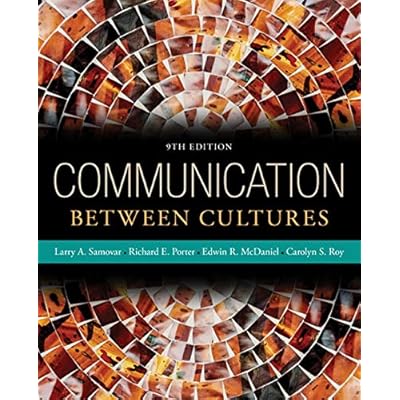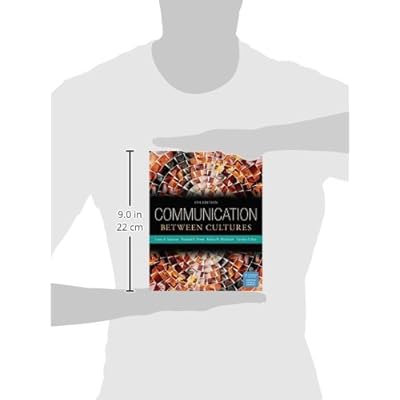Communication Between Cultures
Category: Books,New, Used & Rental Textbooks,Humanities
Communication Between Cultures Details
Review "The text is rich with research and current examples, which brings the ideas of culture and diversity to life for my students. The approach makes the text and subjects inviting to my students, especially when I challenge them to react and respond to activities or questions from either the end of the chapters, or from the resource manual. My focus is on application, not just theory, and the approach of the text helps achieve that goal.""This text has a depth to it that is noteworthy. It really does try to get to the heart of why cultures differ in terms of their history and religion. This is certainly not a 'dumbed-down' book in any way." Read more About the Author Larry Samovar, Emeritus Professor at San Diego State University, received his Ph.D. from Purdue University, where he taught for five years. He was also an invited scholar at Nihon University in Japan. As an early pioneer in the field of intercultural communication, he has been a guest speaker at many universities in the United States. In addition, Dr. Samovar has worked as a communication consultant in both the private and public sectors. He has written and/or edited 14 textbooks--totaling 45 editions. Many of his publications have been translated into foreign languages and are used in 11 countries. As an active researcher he has presented more than 100 scholarly papers and conducted numerous seminars and workshops at international, national, and regional conferences. His publication list is extensive and encompasses books and articles on intercultural communication, small group communication, interpersonal communication, and public speaking.Richard E. Porter is Professor Emeritus in the Department of Communication Studies at California State University, Long Beach. He earned his Ph.D. from the University of Southern California. Dr. Porter developed his interest in intercultural communication in 1967 before there was an established field of study. His and other pioneers' early work in the field laid the basic structural foundation used by many later scholars as the field developed and expanded. For 30 years he created and taught undergraduate and graduate courses in intercultural communication. Dr. Porter is the co-author and editor of four books with 24 editions that deal with the subject of intercultural communication.Edwin (Ed) R. McDaniel received his Ph.D. from Arizona State University. He is currently a Member-at-Large of the Japan-U.S. Communication Association and a member of the Thunderbird Educator Network at the Thunderbird School of Global Management. He is also a retired Professor of Intercultural Communication at Aichi Shukutoku University in Nagoya, Japan, and has been a Japan ICU Foundation Visiting Scholar at the International Christian University in Tokyo. In addition, Dr. McDaniel has taught at San Diego State University, CSU San Marcos, and Thunderbird. In May 2013, he was an invited speaker at the China Cultural Industry Forum (CIF) in Beijing. He is the co-author/co-editor of numerous books on intercultural communication. His articles and book chapters have been published in China, Germany, Korea, and Japan, as well as the United States. Before beginning his academic career, Dr. McDaniel was in government service for over 20 years, during which time he lived and traveled in more than 40 countries.Carolyn Sexton Roy has been a member of the History Department at San Diego State University since 1989. Her doctoral studies in Colonial Latin American history were conducted at the University of California, Los Angeles. A well-practiced presenter of papers at regional, national, and international conventions, she has been published numerous times. She has traveled extensively in Latin America. A Fulbright Fellowship enabled her to conduct research for an extended period and salvage an archive in Parral, Chihuahua, Mexico. Her linguistic skills--particularly applied to Latin America--facilitate her high level of understanding of intercultural communication. Read more

Reviews
This is a really disappointing book. I don't know how "cultural experts" got away with making baseless assumptions about race, religion and culture. I had to request a rate drop for the class that was teaching this book and my college gave me my money back. It has islamophobic comments, racist comments and the index is laughable. They quote nonacademic from websites with clear political agendas and they present cultures of color as caricatures. Only I haven't returned my rental and paid full price for the book is so that my friends and I can burn it at our bonfire when we get back to school. The professor who was teaching us this book isn't teaching it anymore. SO If you are privileged enough to read such a bias book and not have it hinder your learning - go ahead. But if you care about academic honestly, diligence and want a quality intercultural communications education, look somewhere else.



